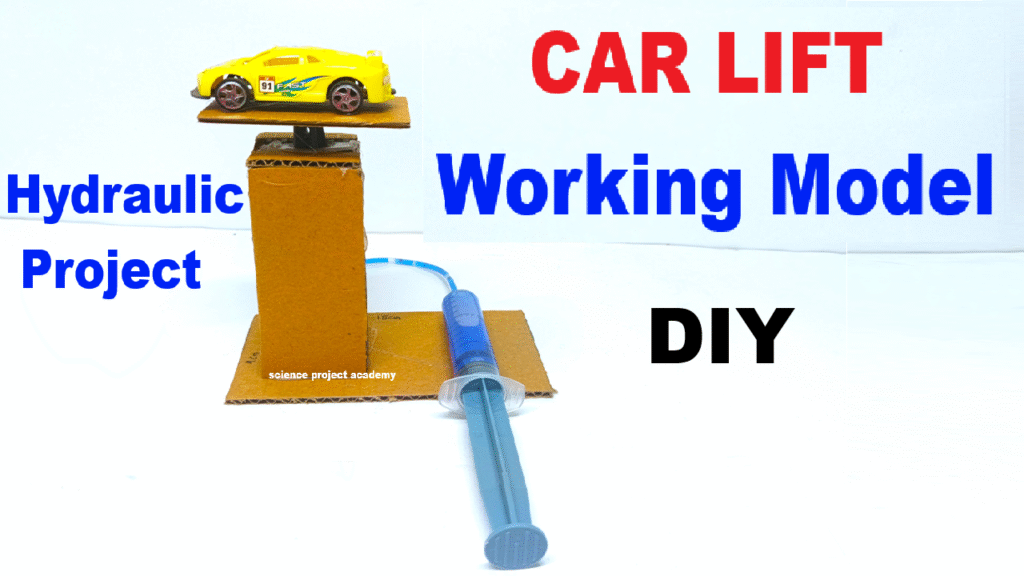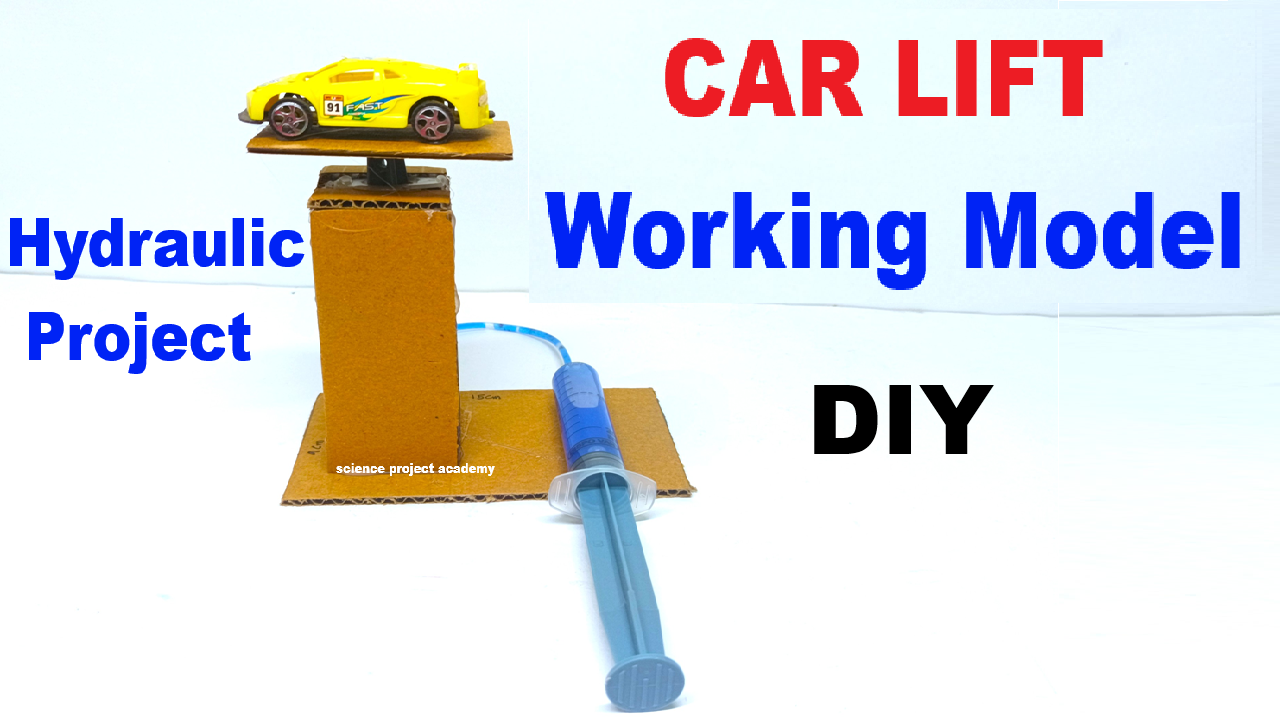Aim / Objective:
To demonstrate how hydraulic pressure can be used to lift a vehicle, showing the application of Pascal’s Law in real-world machinery.

Materials Required:
- 2–4 Plastic syringes (without needles)
- Flexible plastic tubes (to connect syringes)
- Cardboard or wooden base
- Toy car (to lift)
- Glue or tape
- Water (as hydraulic fluid)
- Wooden sticks or cardboard (to construct the lift platform)
- Scissors
Working Principle:
The model works on Pascal’s Law, which states that pressure applied to a confined fluid is transmitted equally in all directions.
- When the piston of one syringe is pushed, it creates pressure in the liquid inside the tube.
- This pressure is transmitted to the connected syringe, causing its piston to move upward, lifting the platform and the toy car.
- The setup simulates real hydraulic lifts used in garages and industries.
Procedure:
- Construct a lift platform using cardboard or sticks that can hold the toy car.
- Connect two syringes using flexible tubes filled with water (ensure no air bubbles).
- One syringe acts as the control; the other lifts the platform.
- Attach the lifting syringe to the bottom of the platform.
- Push the control syringe slowly — the water transmits pressure to the lifting syringe.
- Observe the platform and toy car rising.
- Pull the control syringe back to lower the car safely.
Observation:
- When the control syringe is pushed, the connected syringe moves upward, lifting the car.
- Pulling back the control syringe brings the platform and car back down.
- The movement is smooth, demonstrating hydraulic pressure transmission.
Conclusion:
The hydraulic car lift model effectively demonstrates the use of liquid pressure to lift heavy loads.
It shows how hydraulic systems are used in real-world applications like car lifts, elevators, and heavy machinery, allowing a small force to move a larger load efficiently.

